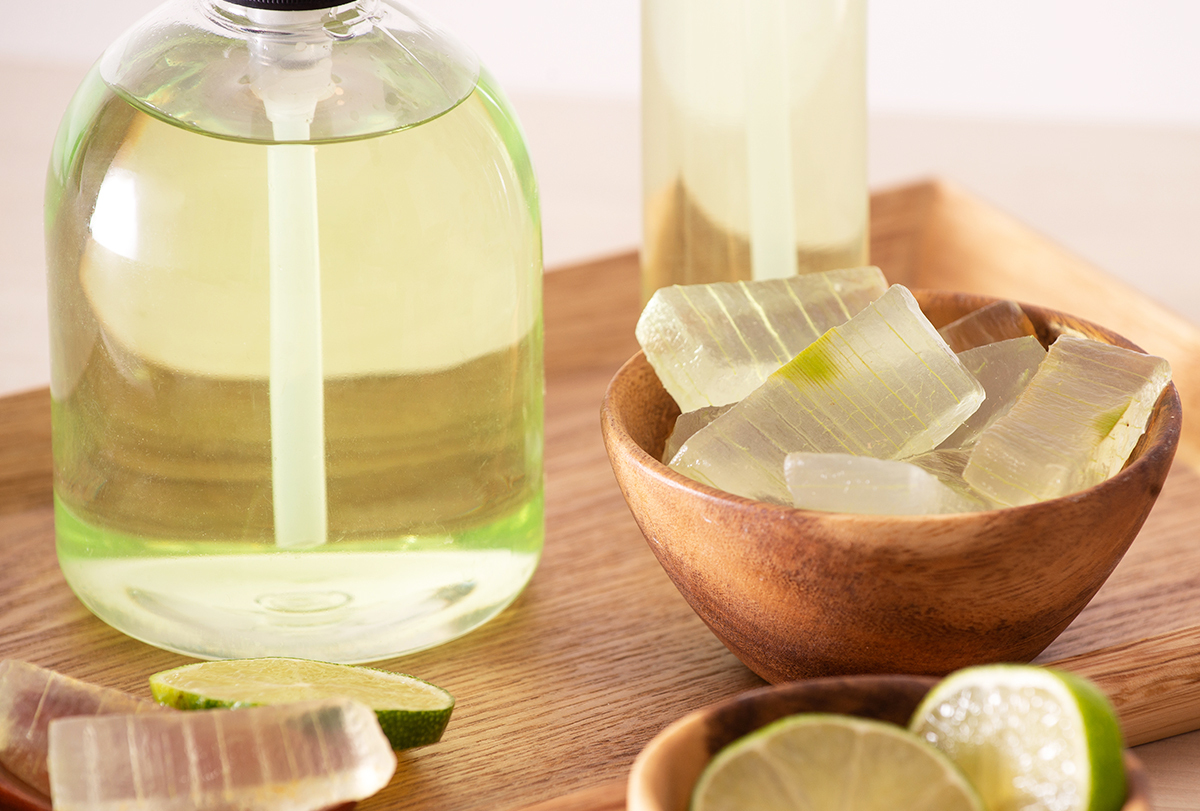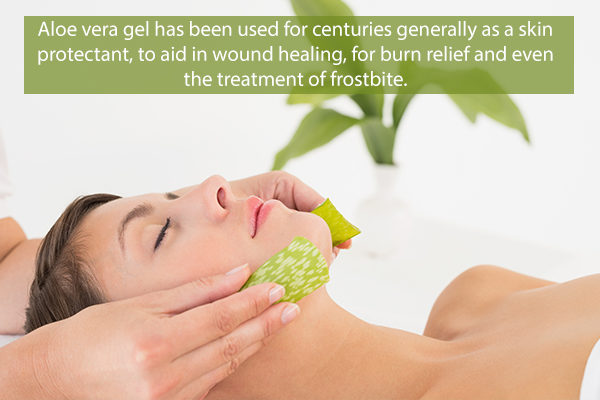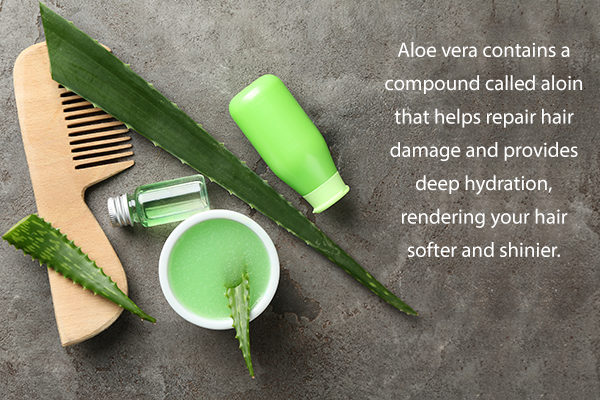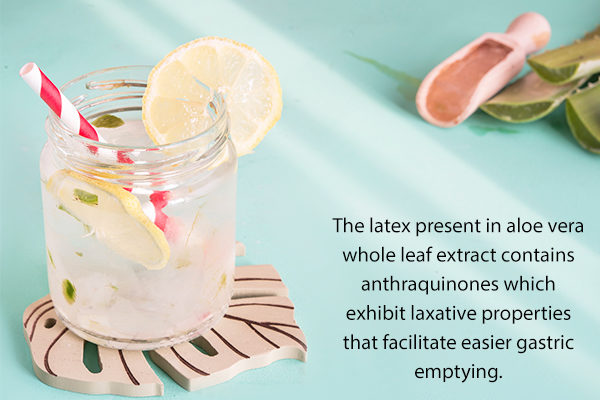In this article:
Aloe vera gel is popularly used for skin care, wound healing, burn relief, and many other problems. It contains various antioxidants, vitamins, minerals, and proteins.

The active components of aloe vera can help relieve inflammation, improve hair quality, and aid in maintaining your general health. This article discusses the various health benefits of aloe vera.
Note: Some cultures use the leaves of the aloe vera plant, much like a vegetable, including the young stem of its flowers. (1) However, it is not recommended to eat aloe leaves as the leaf extract contains aloe latex, which is not likely safe for consumption.
Aloe Vera for Skin

Aloe vera is highly beneficial for various skin problems as well as general skin health.
- Aloe vera gel may act as an anti-inflammatory agent (1)(2) and a pain reliever at the site of skin injury.
- It may also help relieve itchy, irritated skin, which is one of the allergic responses when histamine is released.
- Oral intake of aloe sterol can help reduce the appearance of wrinkles and improve the overall skin elasticity. (3)
- Aloe vera gel can be beneficial for acne if 50% aloe vera gel solution, in conjunction with tretinoin gel, is applied after facial cleansing in the morning and evening. (4) Long-term treatment of aloe gel or cream twice daily or more may also be effective in reducing the appearance of acne-related scars. (5)
- Aloe vera application may also help manage the symptoms of psoriasis. (6)(7) The aloe vera treatment for psoriasis likely works best in conjunction with other treatments for the condition. Consult a doctor if you have the condition. Aloe vera is NOT a cure for skin conditions, and a doctor or dermatologist should be consulted beforehand.
- The anti-inflammatory and antimicrobial properties of aloe vera can help soothe and heal a diaper rash. (8) The topical use of aloe gel for treating a diaper rash is generally considered safe for infants who are aged 3 months or older. Before trying this remedy, you must consult your pediatrician to see if it is suitable for your baby.
- Aloe vera gel for sunburn has been a long-time natural home remedy due to the cooling sensation it gives on the hot, reddened skin. Using a dermatologist-approved over-the-counter aloe vera gel is also appropriate in this case.
Aloe Vera for Hair

Aloe vera contains ample amounts of magnesium, which helps stimulate hair growth by activating the follicles in the scalp. Aloprogen, a glycoprotein also found in aloe, has anti-allergenic properties.
Aloin, the compound responsible for the cooling and moisturizing properties of aloe gel, can also help undo hair damage and make your tresses soft and shiny.
Aloe Vera for General Health
While aloe vera is popular for improving skin and hair, it is also found to have wide applications in general health, including management of oral, gastrointestinal, and hormonal problems.
1. Aloe vera can be used as a mouthwash
A randomized placebo double-blind study found that aloe vera gel in a mouthwash significantly reduced the swelling and pain associated with the postoperative tooth extraction. (9)
Similarly, in another study, aloe vera mouthwash was found to improve the condition of oral stomatitis in patients with cancer by decreasing both pain and intensity. (10)
2. Aloe vera can aid in constipation relief

Aloe is used to relieve constipation in traditional Indian medicine. The latex found in aloe vera juice contains anthraquinones, which are primarily responsible for the plant’s laxative effects.
For constipation relief, 100–200 mg of aloe or 50 g aloe extract at bedtime was found effective. An alternative treatment is 500 mg aloe capsule, which is started at one capsule per/day and suggested to be increased to up to three capsules per/day if needed.
3. Aloe vera may help improve reproductive health
Aloe vera has been used in some cultures as a uterine stimulant to regulate menstruation.
Recent research has been conducted on aloe and its reproductive effects. However, the results were conflicting and null due to the use of animal subjects. (11) In major literature reviews, there is no mention of aloe vera having any effect on levels of estrogen. (12)
Precautions for Aloe Vera Consumption
As always, never begin a new supplement without consulting your physician.
- DO NOT consume aloe leaf extract or aloe latex by mouth. For maximum safety, the International Aloe Science Council indicated that the maximum allowable aloin content in aloe-derived material is less than 10 ppm (parts per million) for oral use, and the recommended limit is 50 ppm or less for non-medical use. (12)
- Pregnant women are advised AGAINST taking herbal supplements during pregnancy and should always consult a doctor regarding supplements even before conception if trying to become pregnant.
- Breastfeeding mothers should also avoid supplements and consult their doctor for safe use as chemical compounds can be transferred to the infant via breast milk.
- Daily use of aloe is not recommended. Incorrect oral consumption of aloe vera can cause cramping and diarrhea.
- Long-term intake of aloe is known to have adverse effects, such as hematuria (blood in urine), kidney problems, and cardiac irregularity.
- Aloe vera is not recommended in the treatment of irritable bowel disease (IBD), hemorrhoids, kidney disorders, and diabetes and in those who are presurgical candidates. (12)
- Oral ingestion of aloe vera was found to have counteracted the effect of diabetes medications. Several cases of hepatic (liver) toxicity requiring hospitalization were reported for short- to long-term use of aloe preparation. (12)
- It is known that many herbal supplements can have food-drug interactions with prescription drugs. Hence, it is important to discuss any interest in adding herbal supplements to your diet with your doctor.
- Aloin, emodin, and aloe-emodin are some of the compounds found in aloe latex that have been studied relating to genotoxicity and carcinogenicity in lab rats in both in vivo and in vitro studies. (12)
- The topical use of aloe vera gel is typically safe for most people. If you are allergic to the plant, it can also cause hives, itching, irritation, and swelling.
Final Word
Aloe vera has been used for skin problems and wound healing for centuries. Its topical application is common for acne, burns, and rashes. Aloe vera can also be used for oral and hair health. However, it is necessary to use aloe vera with caution, as excessive or wrong intake can cause health problems.
- Was this article helpful?
- YES, THANKS!NOT REALLY


